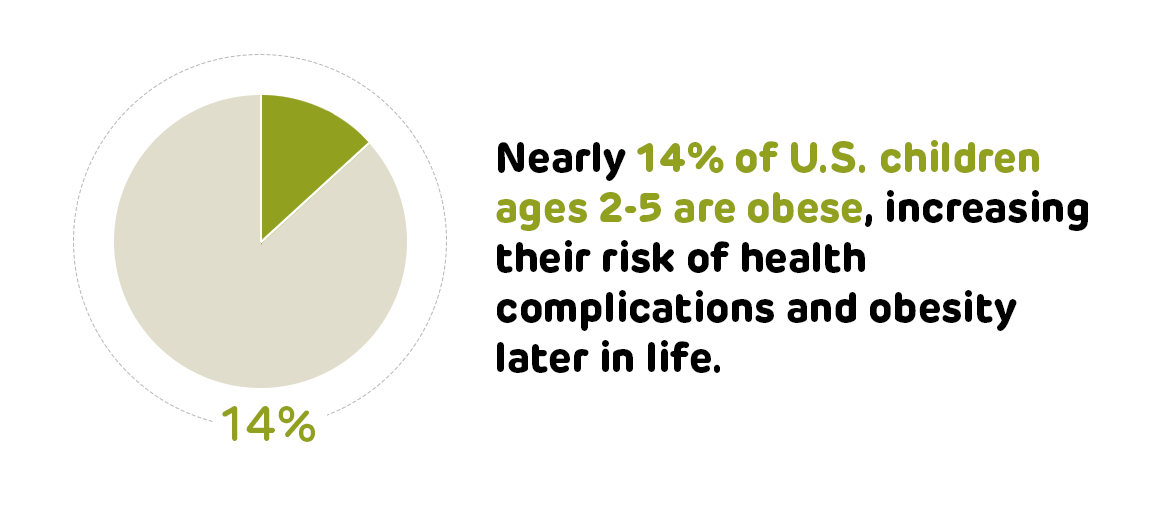How Neighborhood Environments Impact Diet and Obesity Risk Among Low-income Families
Statement of Problem
According to the Centers for Disease Control and Prevention, nearly 14% of U.S. children ages 2-5 are obese, increasing their risk of health complications and obesity later in life. Having an unhealthy diet is a key risk factor for developing obesity in childhood, and we know that parents play a significant role in establishing eating patterns in young children. However, encouraging and supporting nutritious eating among children—which can mean, for example, consuming a variety of fruits, vegetables, carbohydrates, and fats and limiting sugar-sweetened beverages—may be a challenge for some caregivers. In fact, parental stress can contribute to their children having poorer diet quality and obesity.
In addition, low-income families may experience disproportionately high levels of stress due to adverse neighborhood factors such as crime, which may lead to stress-related consumption of unhealthy foods. Alternatively, living in neighborhoods with supportive social environments may act as a barrier to the effects of stress and promote healthier eating patterns. A growing body of evidence also suggests that obesity tracks across generations, underscoring the importance of examining diet from an intergenerational perspective.
Identifying how social and environmental factors impact early childhood diet is essential to promoting child health and well-being. However, few studies have examined the link between neighborhood social factors (e.g., crime, perceived safety, collective efficacy) and diet, and to our knowledge, no prior studies have examined associations of the neighborhood social environment with dietary quality among low-income preschool-aged children from an intergenerational perspective.
Description
How Neighborhood Environments Impact Diet and Obesity Risk Among Low-income Families
How Neighborhood Environments Impact Diet and Obesity Risk Among Low-income Families


Supporting nutritious eating among children can be challenging for caregivers. In addition, low-income families may experience higher levels of stress due to adverse neighborhood factors, which may lead to stress-related consumption of unhealthy food.
Dr. Mayne and her team will conduct this preliminary study over a two-year period to examine and evaluate associations between neighborhood social environments and diet quality among low-income families. They will enlist up to 200 Medicaid-enrolled children ages 2-4 years old and their mother/female guardian from urban primary care practices within Children’s Hospital of Philadelphia’s network. The team will collect data from caregivers on parent and child diet, perceived neighborhood characteristics, maternal stress, and parent and child socio-demographics through an in-person, self-administered survey. After data is collected, the researchers will examine the distribution of parent and child dietary measures alongside neighborhood characteristics.
Next Steps
Given strong evidence for obesity risk across generations and the importance of intervening early in childhood, exploring and identifying social and environmental effects on a young child’s diet is essential to promoting child health and well-being. The results of this study will address a literature gap on how the neighborhood social environment influences diet among low-income families, a population at increased risk of obesity development. This study may also provide evidence for future studies that will lead to high-quality, effective obesity prevention strategies on a multi-level perspective.
This project page was last updated in February 2020.
Suggested Citation
Children's Hospital of Philadelphia, PolicyLab. How Neighborhood Environments Impact Diet and Obesity Risk Among Low-income Families [Online]. Available at: http://www.policylab.chop.edu. [Accessed: plug in date accessed here].
